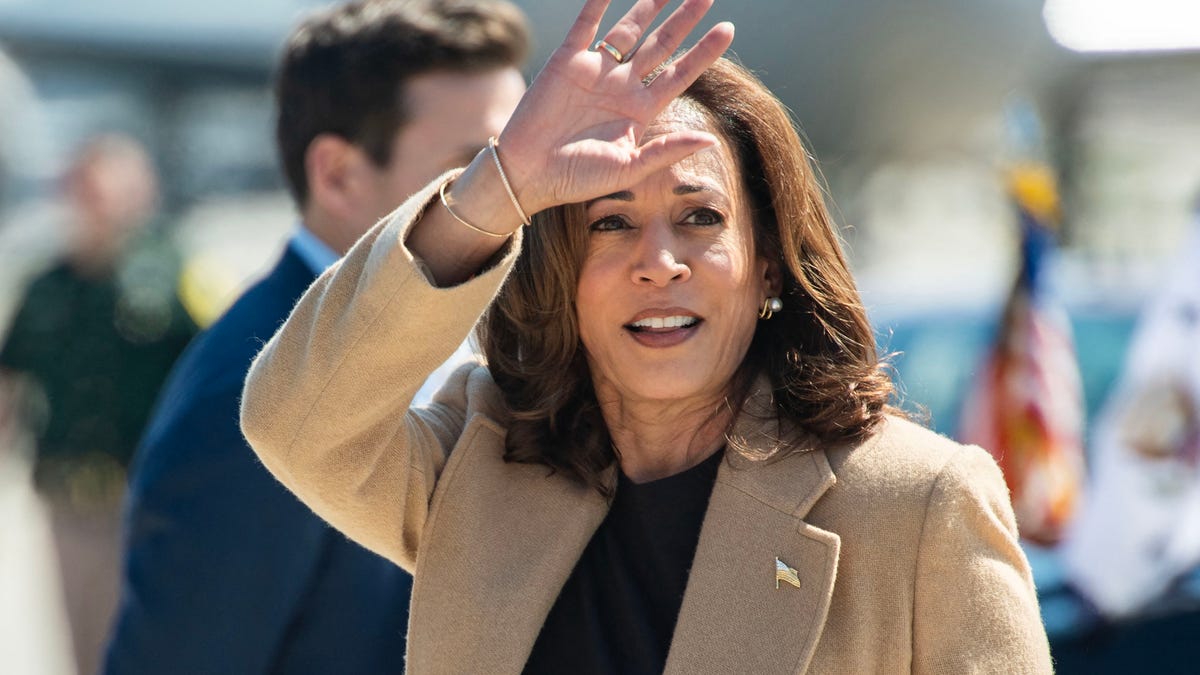Harris reveals significant policy shift from Biden on capital-gains tax rate
WASHINGTON — Democratic presidential candidate Kamala Harris announced on Wednesday a more moderate increase in the capital-gains tax rate compared to President Joe Biden’s earlier budget proposal, representing a notable divergence in policy from the current president.
Harris proposed a capital-gains tax rate of 28% for individuals earning at least $1 million, which is less than Biden’s suggested top rate of 39.6% — the tax applied on profits gained from selling investments, such as stocks or property.
“We will ensure that the wealthy and big corporations contribute their fair share, but we will also set a capital-gains tax rate that encourages investment in America’s innovators, founders, and small businesses,” Harris stated.
Harris made her business-friendly capital gains proposal during a campaign event at the Throwback Brewery in North Hampton, New Hampshire.
“When the government promotes investment, it sparks widespread economic growth and job creation, which strengthens our economy,” she declared during her speech, where she also introduced additional tax relief proposals aimed at stimulating small business growth.
The Wall Street Journal was the first to report on this capital-gains tax plan. Currently, the tax rate stands at 23.8%, which comprises a 20% flat rate plus an additional 3.8% on investment income.
Throughout her six-week campaign, Harris, similar to Biden, has adopted a populist stance on taxation, criticizing Republican nominee Donald Trump for endorsing tax reductions for the wealthiest individuals and corporations.
When Biden presented his budget in March, he suggested that affluent households earning more than $1 million should face the same 39.6% marginal tax rate on their income as high-income earners do on their salaries.
However, a source knowledgeable about Harris’ proposal indicated that she feels a lower capital gains tax would provide “an even greater incentive for investment and enhance access to capital for small businesses under her Democratic leadership – representing a more moderate stance on this topic.”
The proposal follows a New York Times report that highlighted significant Wall Street and Silicon Valley donors to the Harris campaign urging her to rethink tax hikes based on Biden’s budget affecting wealthy Americans. The Times noted that a group of 100 venture capitalists supporting Harris conducted a poll revealing that many believed “taxing unrealized capital gains would hinder innovation.”
Nevertheless, Harris’ capital-gains tax suggestion does align with a more contentious aspect of Biden’s budget concerning unrealized capital gains, where Biden proposed a fresh 25% tax on investment gains for Americans worth over $100 million, even if those assets haven’t been liquidated.
During her campaign speech in New Hampshire, Harris reiterated her backing for introducing a minimum tax for billionaires and insisted that corporations should “contribute their fair share” through an increase in the corporate tax rate.
She also set a goal to facilitate the formation of 25 million new small businesses by the conclusion of her initial term should she win in January 2029. Her plans include support for business incubators, reducing bureaucratic barriers that hinder small business establishment — such as lengthy tax filing processes — and increasing the tax deductions for startup expenditures from $5,000 to $50,000.
“It’s essentially providing a tax benefit for launching a small business,” Harris explained.
Harris criticized Trump for attempting to “eliminate” federal programs designed to offer loans to small businesses and for supporting tax benefits for billionaires and corporations, which she claims would result in an increase of over $5 trillion to the national debt.
“We can count the consequences,” Harris stated.
As she lays out her economic vision, Harris builds upon the proposals from the Biden administration, vowing to enhance tax credits for families with children and to offer additional deductions for working-class families.
Last month, Harris mentioned her intention to implement a federal ban on price gouging for food and groceries, limit prescription drug expenses to $2,000 annually, and cap the monthly cost of insulin at $35. She has also offered to expand several current tax credits for middle-class Americans and There is a program that offers $25,000 in down payment assistance specifically for those buying their first home.
For inquiries, reach out to Joey Garrison on X, which was formerly known as Twitter, at @joeygarrison.

